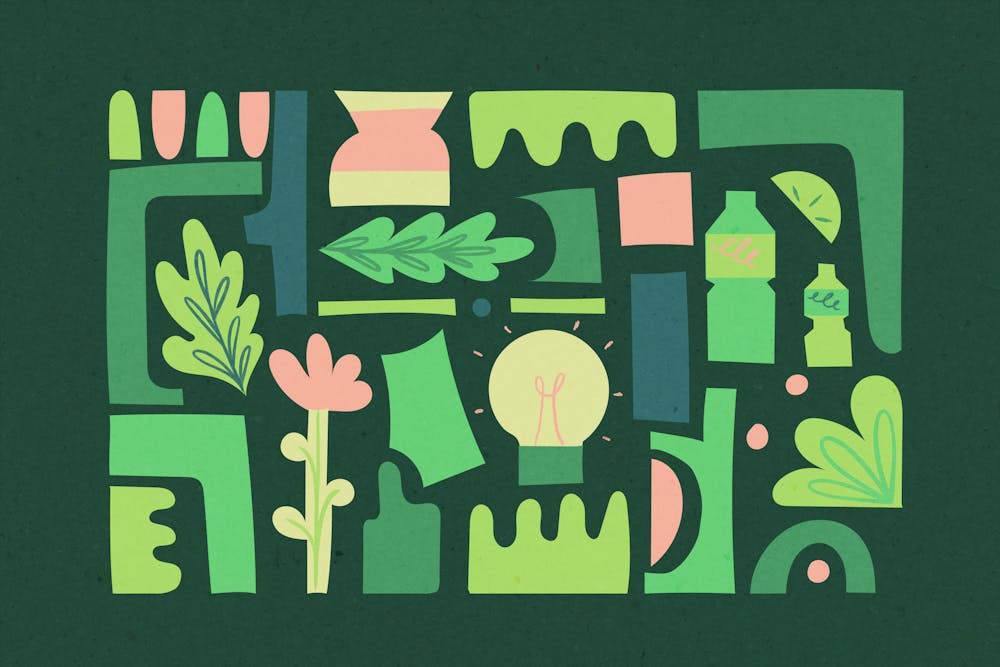Sustainability at USC can be traced back several decades, but a group of current students make it their mission to promote sustainable practices consistently through education, outreach and demonstration.
Sustainable Carolina is the student arm of the Office of Sustainability. The office, established in 2009, originated from the Sustainable Universities Initiative, which brought together all South Carolina public institutions to work for greener buildings starting in the 1990s.
The office uses student engagement and sustainability work for volunteer projects and to spread more awareness and education. Larry Cook, the director of the Office of Sustainability, said that student involvement has always been a part of USC's sustainability history.
Sustainable Carolina members work in six groups: the garden, environmental justice, zero waste, campus outreach, K-12 outreach and green certification.
"We really don't want people to think, 'Oh, the Office of Sustainability are the ones who do sustainability on campus,'" Cook said. "We're really trying to spread the message that this is this is kind of a culture and a mindset that really kind of integrates with whatever you're doing."
Environmental justice is a new group that started this semester thanks to a grant from the Center of Integrative and Experiential Learning. The team has developed a podcast called "Equalitree," where they discuss environmental issues such as hazardous waste cleanup.
The garden, located behind Green Quad Building C, grows produce sold weekly at the Healthy Carolina Farmers Market on Greene Street. Fourth-year biology student Lanie Berrigan is one of three coordinators for the garden team and is the market coordinator for the Healthy Carolina Farmers Market. She said she plans regular events for the garden team, such as making and using natural dyes, to help her group learn and strengthen together.
"I love talking about gardening and showing new people how to identify plants (and) why we do what we do in the garden," Berrigan said. "Whether that be to promote local native plant diversity or to preserve our nutrients (or) to pay respect to the land that we grow on."
Students who are not members of Sustainable Carolina can still sign up to volunteer in the garden on the Office of Sustainability website.
Zero waste promotes recycling and reducing waste through events such as USCream, a costume swap event on Oct. 26th that allowed students to give away and take used Halloween costumes.
K-12 outreach creates sustainability lesson plans for the second grade class at A.C. Moore Elementary School and collaborates with the Department of Health and Environmental Control on mentoring sustainability projects at high schools. Similarly, campus outreach raises awareness about general sustainability habits on campus through events, such as tabling at the City of Columbia's annual PARK(ing) Day event in September, and partnering with other student organizations.
Green certification works with university offices, houses and student organizations to certify that campus events are using sustainable practices, such as providing reusable dishware and recycling and compost bins.
Third-year international business and finance student Gloria Estein is a green certification project coordinator currently working to certify that USC's Office of Finance and the fourth floor in the Darla Moore School of Business are using sustainable habits, such as through reduced electricity consumption and office clean-out days. Students who learn these habits can apply them in the future in their own workplaces.
"When you go out into your job, you can also make impactful change because most of us will be working for corporations that have a lot of power," Estein said. "But it starts by first planting the sustainable seed in yourself and in others here on campus."

Michael Koman, the first director of the Office of Sustainability in 2008, pioneered the development of Sustainable Carolina. Cook said Koman was an early advocate for sustainability at USC and worked on sustainable practices in USC housing before becoming the director.
Sustainable Carolina also participated in the Green on Greene sustainability showcase that brought many student organizations together to promote sustainable practices during campus sustainability month in October.
"We're kind of one of the leading student leadership (groups) in sustainability for the rest of the state," Berrigan said. "So I'm particularly proud of those efforts and love to watch it grow."
Sustainable Carolina has a calendar of events on its Instagram page, and Cook said the group's work is always ongoing.
"I feel like our projects, in some ways, are never completed because it's raising awareness, and it's engaging with campus," Cook said.

